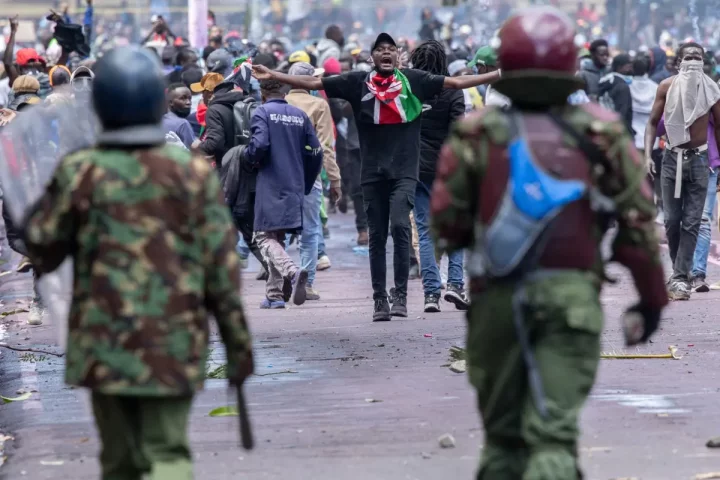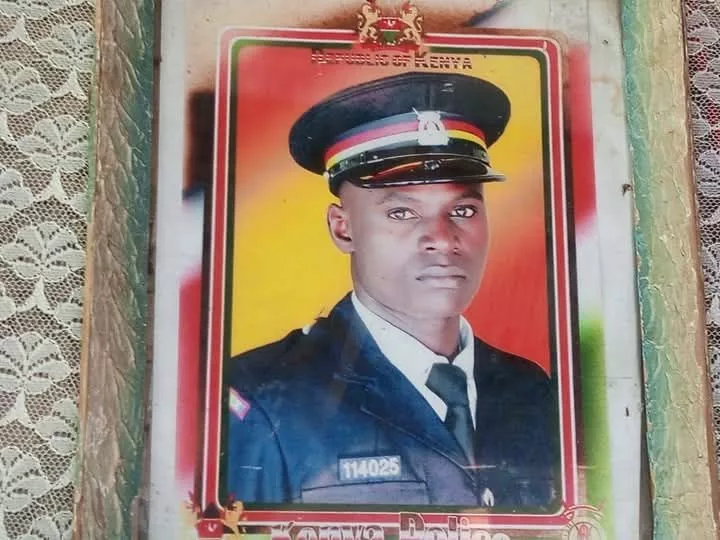
A Kenyan court has ruled that the fatal shooting of Pakistani journalist Arshad Sharif by a police officer in 2022 was arbitrary and unconstitutional.
High Court Judge Stella Mutuku on Monday found that the killing that happened on October 23, 2022 violated the scribe's right to life, right to equal benefit and protection of the law, and right to dignity, among others.
Consequently, the judge ordered the government of Kenya to pay the family Ksh10 million (about $78,000) as compensation. However, she suspended the monetary benefit for 30 days to allow the government to appeal against the decision.
"In view of the analysis above, I find that the respondents, jointly and severally through their actions violated the rights of the petitioners," the judge said adding that Sharif's family should be updated on the status of the investigations and appropriate action to be taken against the police officers found culpable.
The 46-year-old Pakistani journalist had fled to Kenya in July 2022 on a self-imposed exile to avoid arrest after allegedly criticising the country's powerful military rule.
He was shot dead at Tinga area in Kajiado County in what the police later described as a case of "mistaken identity".
Sharif was a passenger in a Toyota Land Cruiser, number plate KDG 200M, and the police claimed they opened fire on the car while trailing a different vehicle, a Mercedes Benz Sprinter van, number plate KDJ 700F, which had allegedly been stolen from Pangani, a few kilometres from Nairobi's central business district.
The following day, the judge said Kenya's Inspector-General of Police admitted that his officers had "fatally wounded" Arshad Sharif in a case of "mistaken identity".
The widow, Ms Javeria Sidique, sued Attorney-General Justin Muturi, Inspector General of Police Japhet Koome, Director of Public Prosecutions Renson Ingonga and the Independent Policing Oversight Authority (Ipoa), among others, accusing them of delaying investigations into the shooting and keeping the family in the dark concerning the probe.
The court ruled that Sharif was subjected to torture as his life was cut short without a just cause.
Justice Mutuku further directed the police to conclude the investigations into the killing, and that appropriate action to be taken against the officers found culpable.
The judge said no person should be deprived of his or her right to life unless as stated in the law and the police should not use force unless it is necessary.
She added that Sharif had full and equal enjoyment of his rights in Kenya, including the right to freedom and security.
The judge noted that the widow wrote several letters to the government and its agencies on the status of the investigations but no response was forthcoming.
Justice Mutuku added that all the government agencies sued in the matter, including the National Police Service, cannot escape responsibility as they have the mandate of upholding the rule of law, good governance and the Constitution.
Sidique's lawyer Dudley Ochiel argued that the use of lethal force against Sharif by shooting him dead was arbitrary, disproportionate, unlawful, and unconstitutional.
The widow revealed in the petition that Sharif used to provide for his two wives, five children and his mother.
She moved to court, saying she was apprehensive that the failure to investigate, arrest, or prosecute the police officers who caused the death of her husband was a ploy cover-up the matter and a violation of the Constitution.
















Comments